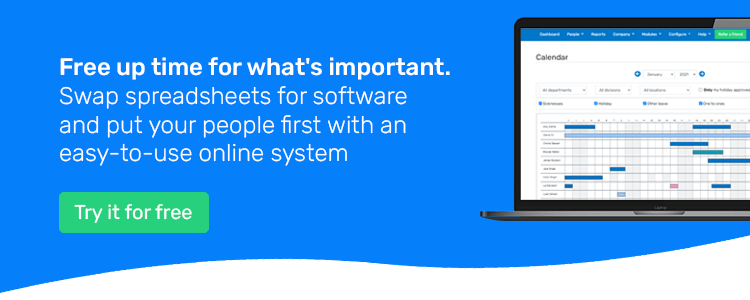Have you ever considered hiring an apprentice?
At Breathe, we did just that a few years ago- and haven’t looked back.
In this article, we look at the business benefits of apprenticeship schemes and how hiring apprenticeships can help SMEs.
What is an apprenticeship?
Apprenticeships are a training system that combine on-the-job training with study. Apprenticeships are usually vocational and help people train in the field they want to be employed in or change their career to.
In England, anyone over 16 can apply for apprenticeship schemes if they aren’t in full-time education. There are also degree apprenticeships and graduate apprenticeships to help get graduates into work.
Apprenticeships aren’t restricted to those leaving education. They’re a great way of upskilling older workers too. Apprenticeships for career returners – such as parents re-entering the workforce after time off caring for children – are increasingly popular, as are apprenticeships for the over 50s.
What is the Apprenticeship Levy?
You might have heard about the Apprenticeship Levy and wondered how it affects your business.
The Apprenticeship Levy is a tax designed to help and encourage employers to offer more apprenticeships. The money collected from this tax is stored in a fund, designed to help pay for apprenticeship training costs.
The levy applies to businesses with an annual pay bill of more than £3 million and is charged at 0.5% of an employer’s total annual pay bill. The tax is collected monthly as part of the PAYE bill.
Smaller businesses don’t pay the Apprenticeship Levy but will benefit from it if they hire apprentices. Larger businesses will only benefit from it if they run apprenticeship schemes.
The benefits of apprenticeships for SMEs
1. Upskill your team
Help super-charge employee engagement and boost retention by developing the skillsets of existing employees. Apprenticeships allow you to expand the knowledge within your existing team and provide staff with valuable development opportunities.
If you’ve got the scope and resource within your business to offer on-the-job training to an apprentice, this could be the ideal time to offer an apprenticeship for existing employees to study and work. This could allow them to move into a different department or to pursue a new vocation.
2. Financial incentives
All businesses who hire apprentices are entitled to receive a £15,000 payment from the Apprenticeship Levy. In addition to this, you may be entitled to other financial incentives:
Training cost incentives
If you have fewer than 50 employees, the government will fund all training costs – up to the funding band maximum, if at the start of their apprenticeship, your apprentice is:
-
Between 16 and 18 years old
-
Between 19 and 24 years old and has an Education, Health and Care (EHC) plan.
Businesses with more than 50 employees who do not pay the apprenticeship levy, share apprenticeship costs with the government and pay just 5% of training and assessment costs. The government pays the remaining 95% - up to the funding band maximum.
Payments for hiring a young apprentice
Employers receive £1,000 for hiring an apprentice aged either 16 to 18 years old, or apprentices under 25 with an education health and care (EHC) plan or who have been in care.
It’s also good to know that the minimum wage for apprentices is lower than it is for regular employees. This accounts for the additional investment being given to the apprentice in the form of training.
-
Apprentices aged 16-18 are entitled to £4.81 per hour.
-
Apprentices aged 19 and over and in their first year are entitled to receive £4.81 per hour.
-
Apprentices aged 19 and over who have completed their first year are entitled to the National Minimum Wage or National Living Wage rate for their age.
Many employers choose to pay their apprentices above the apprentice minimum wage.
3. Improve productivity
78% of employers surveyed by the Government apprenticeship scheme said that apprenticeships helped them improve productivity.
Deciding to become an apprentice is a big decision. For this reason, many apprentices are likely to be engaged with their studies and career development. Reassuringly, there is strong evidence to show that apprentices are more likely to stay with their employers after they have qualified. This applies whether they are a school leaver or someone who’s decided to change the course of their career.
4. Improve diversity
Apprenticeships can help improve the diversity of your workforce – instead of attracting the same type of applicants time and time again, choosing to hire apprentices may result in a team that has a broader background and approach. This diversity can be beneficial, adding a different perspective to your workforce. Several studies have shown that a more diverse workforce is more creative, delivers better customer service and even makes less risky decisions.
5. Create your own specialist training programme
A massive 86% of employers surveyed by the Government apprenticeship scheme said apprenticeships helped them develop skills relevant to their organisation.
The benefit of hiring and training an apprentice means that as a business, you’re able to create the exact position and skills you need within your organisation.
You can implement best practices from day one through a structured training programme, instead of retraining an experienced employee. What’s not to like?
Seamless people admin
Hiring and training an apprentice has many benefits. With financial incentives supporting apprenticeships and employee retention rates struggling due to 'The Great Resignation', hiring an apprentice could be a solution to a recruitment problem within your business.
Why not trial having one less thing to think about? Easily manage your people and boost productivity with Breathe’s cloud-based HR software. Try for free today - with no headaches or contract, we promise.

Author: Laura Sands
Laura is a writer who enjoys getting into the detail of subjects and sharing that knowledge with snappy, interesting content. When not typing away, she enjoys walks in the woods and curling up with a good book and mug of something hot.




